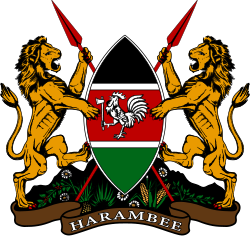This article needs to be updated. The reason given is: Needs a section about the post-2010 era.(May 2024) |
This article needs additional citations for verification .(May 2024) |
 |
|---|
Majimbo (the Swahili word for "regions") is a Swahili term that is commonly used in Kenya to refer to the idea of political devolution of power to the country's regions. It is alleged by critics, including former vice-president Oginga Odinga in his book Not Yet Uhuru , to have been coined by European settlers in Kenya's White Highlands region, around the time of independence in 1963, who preferred to retain an autonomous, ethnically based governance over the region. It has also been alleged, by some of its critics, that majimbo is a pretext for the type of communal violence that has plagued Kenya's elections especially since the return of multiparty politics. In his autobiography Illusions of Power, G.G Kariuki, a long serving KANU Member of Parliament, went as far as to allege the existence of a plot to instigate communal violence in Kenya's independence elections by supporters of a Majimbo system of government.